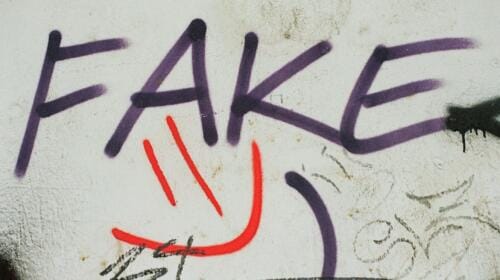The post-war peace was concluded by a consensus. There had to be a better way. The UN and the IMF were the cornerstones of what later became known as the rules-based order. Politicians learned the lesson that all violence starts with anger. But time passed and we grew complacent. We became ever more connected. Facts were plentiful and as with any commodity in abundance, they became devalued. In the pursuit (or retention) of audiences, facts were turned into entertainment. Consensus was commoditised.
There were two necessary conditions for this. The first was a communications revolution that led to a proliferation of social media channels. The second was the speed of the internet. Speed has always had an inverse linear relationship with truth. You could also now go direct to followers without buying media. Without journalism. Without checking anything. Once you set yourself free from the facts, anything’s possible.
This created unsatiable demand for fresh and ever more glycaemic digital donuts, which our industry supplies. Cats, houses, and even trees that look like Hitler.
The appeal of the divisive
Now, if you’re in the creative industry, there’s never been a better time to be alive. Brands – commercial, political, social, charitable – want to reach bigger addressable audiences and so make their content more diverse and more inclusive. Communications now includes all ethnicities, disabilities, sexualities, families and ages. It’s almost more noticeable when it doesn’t.
But inclusivity can also exclude those without economic franchise who somehow feel marginalised. If they are unwilling or unable to participate, inclusivity has the opposite effect. They feel excluded. Some opportunist politicians play to this. It works like this. You pick an issue and say something divisive. The subsequent explosion from those who are diverse and inclusive sucks the oxygen out of the room. There are normally three players. A person or brand wanting publicity. A person or brand being profitably offended and a media interest (either social or broadcast) that loves a bunfight. That’s three sides talking about an issue so the message gets amplified. Anger becomes a new PR propellant, like petrol. It spreads virally. It sets a new standard. Anger as advertising.
Why do brands want to embrace the divisive? One logical reason is that it gets everyone talking about them. This is the school of any publicity is good publicity. Be careful what you wish for. It rests on the idea that the publicity boost offsets the negative effects of any boycotting. Incidentally, you can find a full list of these at The Ethical Consumer. It’s a long list.
Whatever the reason, divisiveness is a sword with two edges. Why? Because we are reduced to a colour set against another colour. Black versus white versus red versus blue versus green versus yellow versus purple. Even our rainbows have been co-opted. Politics has coloured everything. The problem is that what looks smart in the short-term can be awkward in the long-term when trying to unwind a specific position.
What good is politics?
Brands seem to think politics is just like business. It isn’t. Business is about planning for next year. Politics is about surviving until next week. The commentariat around it is also confusing, arbitrary and utterly unpredictable. Eisenhower once warned America about the unwarranted influence of the Military Industrial Complex. Well, we now have a Media Industrial Complex that comes with its own vested interest in creating counterfactual conflict. It sells popcorn.
You see, just when you think you’ve got politics, you haven’t. In politics, there are no right answers. There are only things which are possible and things which aren’t at certain times. Divisive politics holds dangers for consumer brands. Especially for Royal ones. They’re supposed to unify. Especially for ones we put in our bodies. The hallmark of an ingested brand is trust. That’s why they tend to be the most conservative with their marketing.
I’m not saying organisations shouldn’t have a political point of view. But maybe they shouldn’t put it front and centre in their marketing. They should have values. Of course, they should. But done right, these should parenthesise not politicise. Diversity will always beat divisiveness in the long-term. Or put another way, you achieve nothing with hate.



